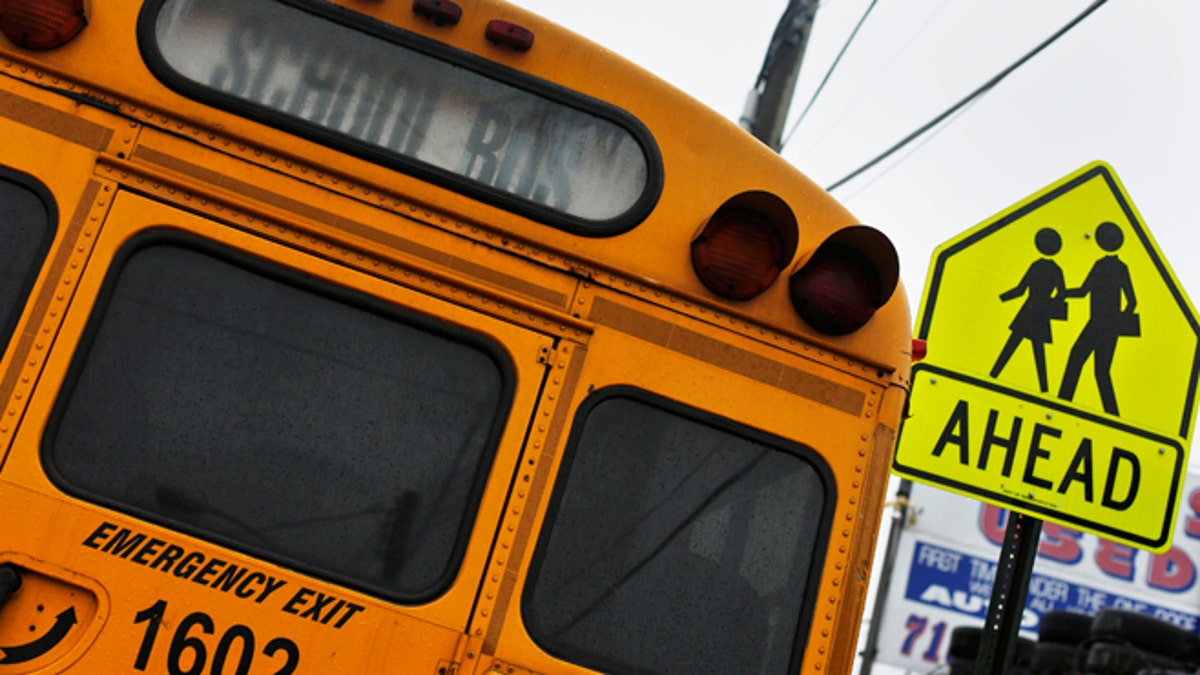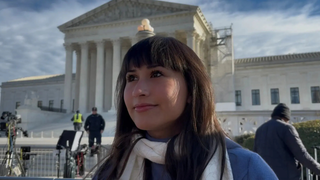
(Reuters)
Do you agree that students shouldn’t have to hide their faith—or be ashamed of it—at school?
That’s the question we recently posted on Facebook while discussing our annual event for students—Bring Your Bible to School Day—which is on Thursday, Oct. 6.
One of the first people to respond was an educator who stated that she disagreed with the whole concept: “I teach at a public high school and no one ‘hides’ their faith.”
Her comment drew multiple responses that illustrate why this initiative—with more than 155,000 participants last year and an expected 300,000 this year—has caught on like wildfire. Here’s a sampling of those responses:
- “Well my son was sent to iss [in-school-suspension] in 1st grade for silently praying before lunch.”
- “My son was told he could not pray for lunch. Living in Iowa.”
- “… one of our youth group kids was told not to bring his Bible back to school. That is a fact.”
- “My son at 5th grade was told he could not bring nor read his Bible on his own time ...”
If you pay any attention to news headlines, you know that stories like these are becoming more common. Why?
Our public schools are a microcosm of our larger culture, and they reflect the ongoing tension over efforts to stifle free expression of faith in the public square.
But here’s a counter-cultural idea: the free expression of faith—in a loving and civil manner—actually helps restore respect and unity in our schools, in addition to bolstering academic goals. I want to share three reasons why.
1. Religious freedom is a core element of our nation’s most cherished traditions and constitutional principles. Therefore, it should be celebrated in our schools, not censored.
Basic expressions of faith such as reading a Bible during free time, bowing one’s head in quiet prayer before eating, or sharing a Scripture verse with a friend before class are all protected by the First Amendment.
Rather than shutting these expressions down in knee-jerk reactions of fear or political correctness, public school officials would better serve students by using them as “teachable moments” to explain the ideals our Founding Fathers had in mind when they wrote the Constitution.
After all, conservatives and liberals alike agree on these principles—as evidenced by the fact that the ACLU defended a student who wanted to read the Bible during an after-school program. And officials in President Obama’s Justice Department, recently lauded efforts to protect Christian students’ rights to “observe Ash Wednesday without fearing an unexcused absence,” as well as Sikh students’ rights to wear turbans at school.
2. Allowing students to freely and respectfully express their faith is consistent with our society’s esteem of tolerance and nondiscrimination.
Students today receive a lot of encouragement to be “true to yourself” and to create a safe place to “be who you are.”
These sentiments are repeated by our highest-level education officials: “No student should ever have to go through the experience of feeling unwelcome at school or on a college campus,” John B. King Jr., the secretary of the Department of Education, said in a statement. “We must ensure that our young people know that whoever they are or wherever they come from, they have the opportunity to get a great education in an environment free from discrimination, harassment and violence.”
But far too often, our schools seem willing to demonstrate tolerance for every possible tradition and belief except that of individuals who want to openly acknowledge their faith in the Bible or Jesus Christ.
This reality was illustrated by the experience of a sixth-grade student, Mackenzie, who was given the assignment to create a presentation for her class titled “All About Me.” Apparently her school didn’t really want to know all about her—because when she included a slide in her PowerPoint presentation with one of her favorite Bible verses, John 3:16, she was told to remove it.
The fact is, a majority of Americans believes the Bible contains essential knowledge needed to live a meaningful life—and two-thirds of Americans believe the Bible is the inspired word of God.
So if a goal of academic instruction is to expose students to the wide range of beliefs they will encounter in a diverse society, it only makes sense for educators to allow kids to hear the faith-based perspectives of their classmates. For one thing, exposure to classmates’ biblical beliefs augments academic knowledge by helping students understand the faith that inspires so much of our historical literature. Shakespeare, for instance, refers to the story of Cain and Abel more than 25 times in his works.
But forcibly eradicating any expression of the Christian faith actually hinders learning. It creates a falsely sanitized environment devoid of the real-life experience students will encounter outside their school walls, and it also puts school officials at risk of illegally demonstrating hostility toward religion.
3. The “love thy neighbor” ethics that Christian students bring to the table are an asset to culture and to any school environment.
At a societal level, Jesus’ command to “do unto others as you would have them do unto you” has translated into millions of dollars and millions of volunteers each year for social service programs from churches, charities, and religious organizations. In schools, where concerns about violence and bullying abound, why would we want to marginalize or exclude students who are likewise invested in following Jesus’ words— “Greater love has no one than this, that someone lay down his life for his friends” (John 15:13)?
That love was reflected in the two students – Lexie and Chase – that I recently had the privilege of interviewing on our Focus on the Family broadcast about Bring Your Bible to School Day.
Chase, who defended his right to have a Bible study during free time at his school, explained his motivation: “It’s a matter of being someone that can show love to others because I have received such love. Why not give it away, why would I not want to show other people?”
Reaching out to others in love—that sounds like something any public school principal would welcome!
In the end, Bring Your Bible to School Day is a chance to unite around the cherished principles that bring us together as Americans—a love for freedom, especially religious freedom—and an admiration for courageous young people who dare to graciously and unashamedly speak about what they believe in schools across the nation.








































